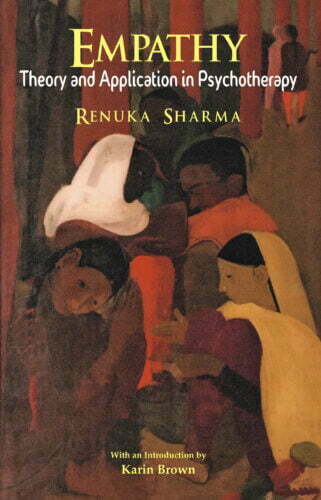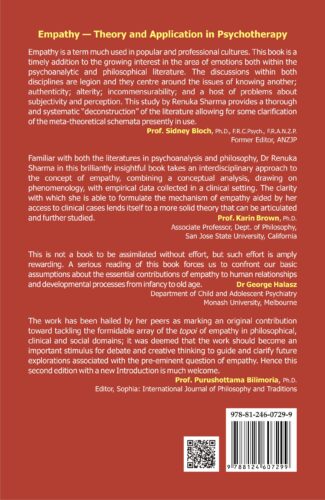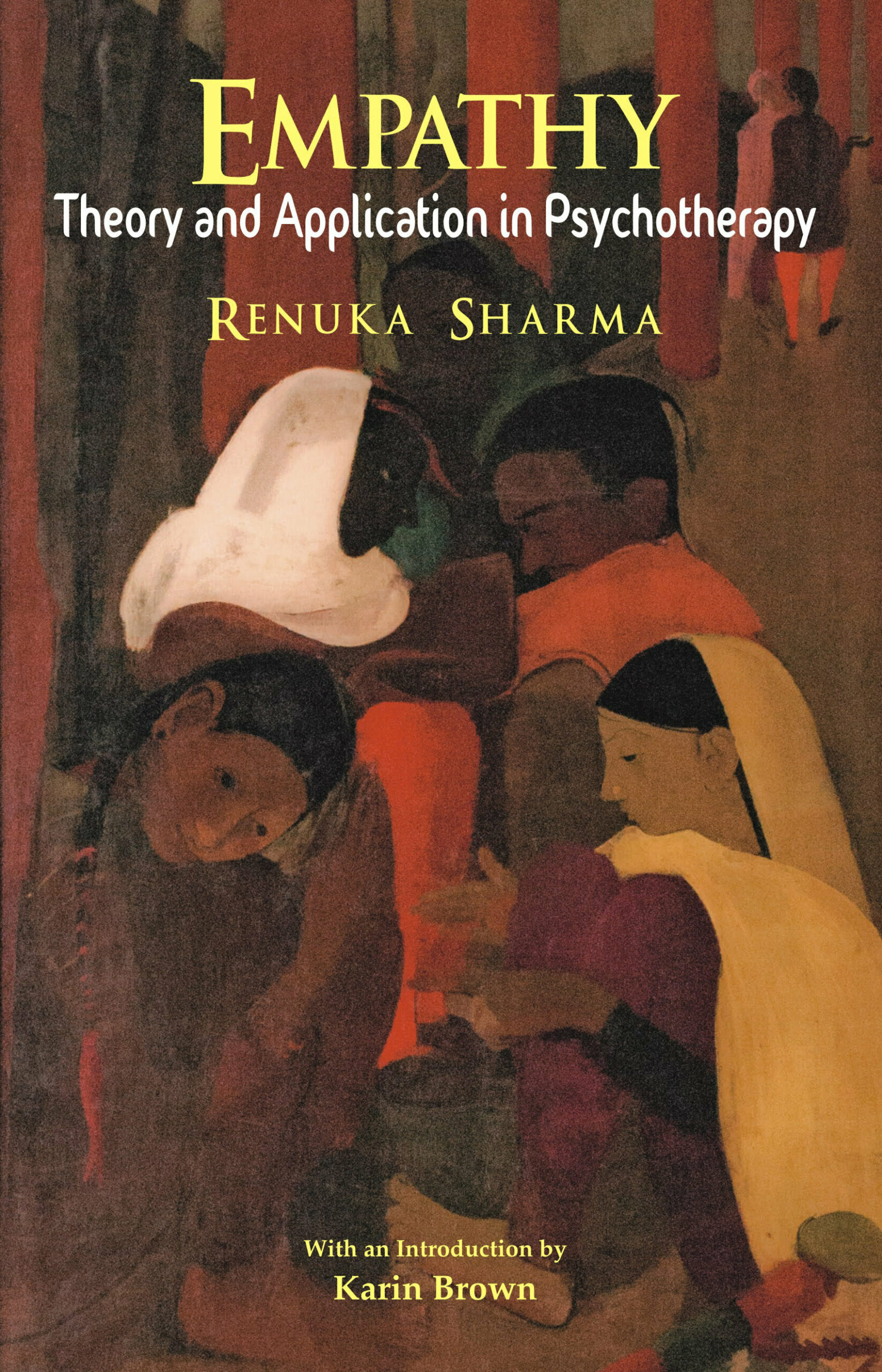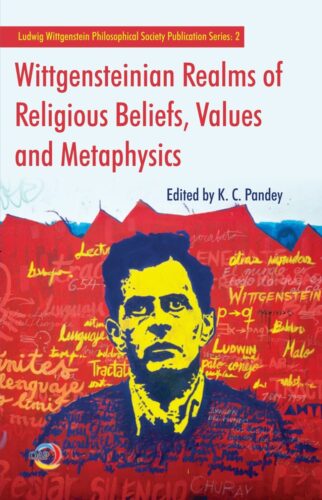

Empathy...
Empathy
Theory and Application in Psychotherapy by: Renuka SharmaEmpathy is quite often misunderstood as sympathy. It has its cognate in the Eastern or contemplative practice of compassion (karuna, metta, krpa) toward another, and also to sorge or care in phenomenological hermeneutics. The book demonstrates the way in which using empathy as a means of diagnosis leads to different, more successful results and course of action in psychoanalysis.
Original price was: ₹280.00.₹252.00Current price is: ₹252.00.
ISBN: 9788124607299
Year Of Publication: 2014
Edition: 1st
Pages : xviii, 117p.
Bibliographic Details : Bibliography; Index
Language : English
Binding : Hardcover
Publisher: D.K. Printworld Pvt. Ltd.
Size: 29
Weight: 450
Empathy is a term much used in popular culture and professional circles. Yet it remains one of the most misunderstood tropes. Most people confuse or conflate empathy with sympathy; though related, these involve somewhat radically different affective or psychological registers. Empathy is founded on the art of understanding a living being’s particular mental state or inner condition, in respect of his/her predicament, pain, suffering, anguish, fear, grief, sorrow, frustration, and anger in certain trying circumstances. There can even be comportment with another’s joy and exhilaration. Its proper use makes possible a much deeper understanding of human communication, relation, intentionality, and action. As such its cognate in the Eastern or contemplative practice of compassion (karuna, metta, kripa) toward another, and also to sorge or care in phenomenological hermeneutics. Thus, there are cognitive, affective and ethical components in the practice of empathy.
The importance of empathy whether in everyday life or as a clinical tool in therapeutic and palliative settings cannot be more emphasized. The book demonstrates the way in which using empathy as a means of diagnosis leads to different, more successful results and course of action. In so doing, the study challenges the erstwhile neglect and misconception of the role of empathy in transference and introspective processes availed in psychoanalysis.
The book introduces novices in the field to the rich literature of psychoanalysis and philosophy, combining conceptual phenomenology with empirical data collected in a clinical setting. Testing the theory against clinical cases, as the book engages with, lends itself to a more solid conceptualization that can be poignantly articulated and studied further. The book will benefit students and practitioners in counselling, social work, psychiatry, psychoanalysis, psychotherapy and philosophy.
Preface to the Second Edition
Purushottama Bilimoria
Preface to the First Edition
Renuka Sharma
Foreword
Sidney Bloch
Introduction
Karin Brown
1. Empathy: A Historical Perspective
2. Problems with Psychoanalytic Definitions of Empathy
Unconscious Polemics
Epistemological Polemics
Semantic Polemics
3. Psychoanalytic Considerations Towards a Definition of Empathy
A. Specific Contributions Towards A Definition of Empathy
Freud Reik Fliess Ferenczi H.S. Sullivan Kohut Schafer Greenson Olden Beres and Arlow Basch Northrup Shapiro Mid-Summary
B. Empathy in Relationship to Other Psychotherapeutic Categories
Therapeutic stance Real relationship Identification Countertransference Projection and introjection Projective identification Kleinian paradigm Bionion paradigm Potential space Regression Introspection Interim summary
4. Implications for Further Clinical and Research Works
A. Redefinition of Empathy
Clinical studies Clinical examples
B. Further Research And Clinical Models
Developmental studies Maternal aspects Infant aspects Cognitive Studies Phenomenological method
5. Discussion and Conclusion
Bibliography
Index









